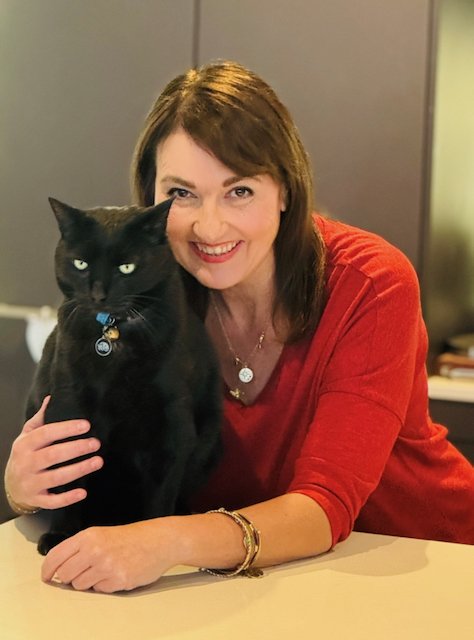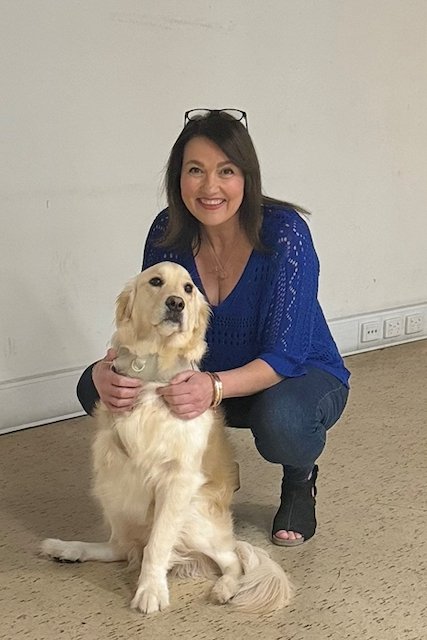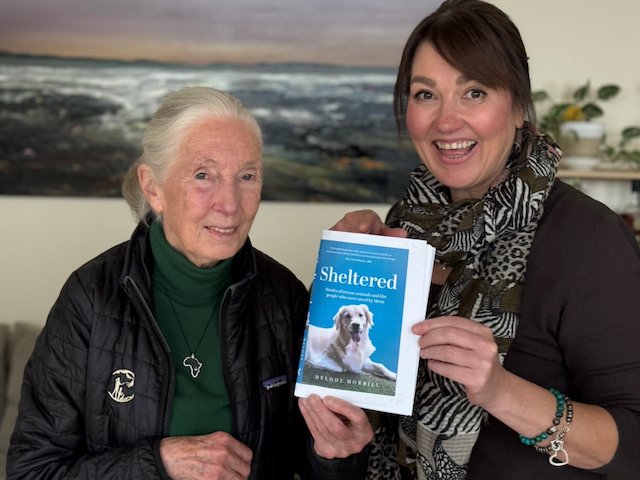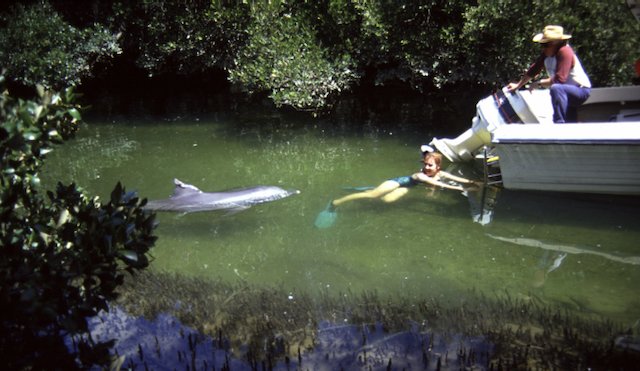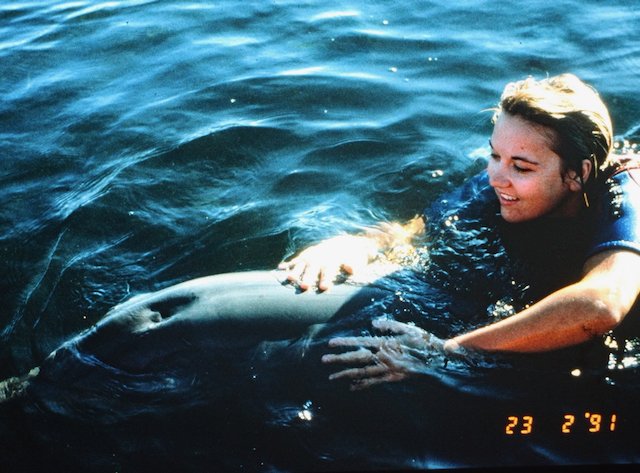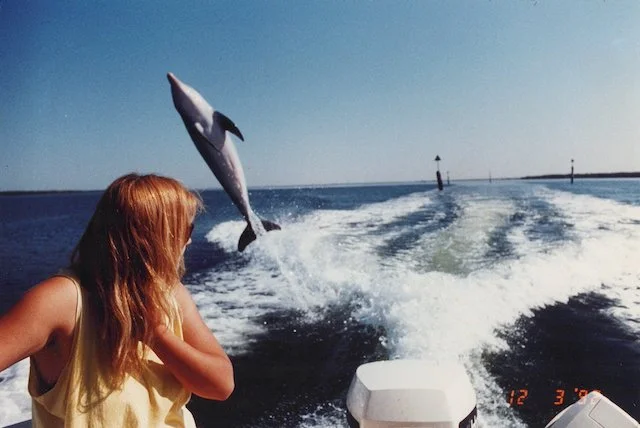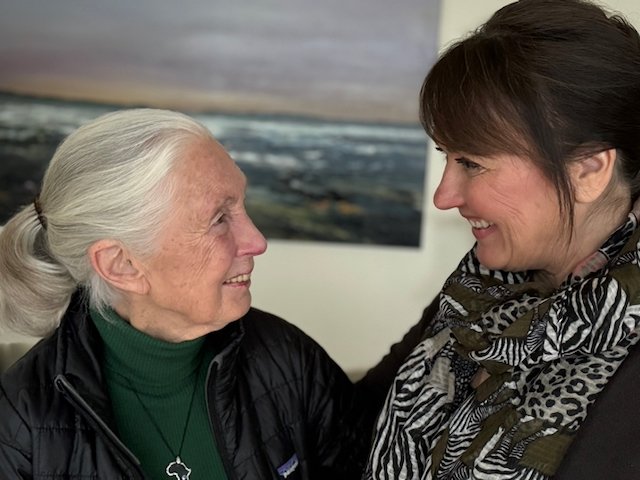Interview with Melody Horril - Author of 'Sheltered' & 'The Dolphin Who Saved Me'
Author Melody Horrill
Interview featuring: Sheltered & The Dolphin Who Saved Me
See my reviews of ‘Sheltered’ and ‘The Dolphin Who Saved Me’
(Note: books are available at your favourite bookstores)
🌊
Bio - Melody Horrill
Melody Horrill is an award-winning Australian environmental journalist, freelance media manager, speaker, and author of three books. She is well known in South Australia for raising awareness about dolphins and marine conservation. She is the co-chair of the Jane Goodall Institute’s Cetacean Committee and Ambassador for Kangaroo Island Dolphin Watch. She lives in Melbourne with her rescue cat, Q, and her partner Grant. She is a passionate animal and nature lover.
Her memoir, The Dolphin Who Saved Me endorsed by Dr Jane Goodall DBE was published internationally. It focuses on her extraordinary friendship with a wild, injured dolphin which helped her heal from a childhood wracked by domestic violence. Her debut young adult fantasy A Cat Called Q and the Magic Globe, also focuses on the theme of connecting with nature and animals. It also explores the power of discovering and believing in inner magic, even during challenging times. Her third book, a non-fiction titled Sheltered explores the power of love between people and their adopted animals, and how animals have changed and enriched people’s lives. It was published in September 2024. Melody loves nothing more than spending time on and in the water, cooking, and hanging out with Q.
🐈⬛ 🫏 🐬 🐎 🐕
INTERVIEW
What inspired you or gave you the idea to write your beautiful book Sheltered?
Animals have always played a significant role in my life. They have been my devoted friends, confidants, and loyal companions who have brought me comfort, and joy and provided unconditional love and acceptance during life’s challenges. Growing up in a household wracked by domestic violence, I turned to my animals for solace and affection. A rescue horse called Eddie who I adopted and nursed back to health as a teenager, provided me with moments of unbridled happiness and freedom away from the tension at home. For hours I escaped into nature, leaving behind the horrors at home. As I grew into a young woman, still dealing with the scars of my past, I met a wild dolphin called Jock who would become my greatest teacher. He taught me about acceptance and joy and proved to me that I could trust again. He showed me the importance of leaving my comfort zone to explore the world around me. Essentially, he allowed me to experience pure love. Throughout my life, my companion dogs and cats showed me the importance of caring, compassion, and living life in the moment. I believe animals have a remarkable capacity to soothe our souls and troubled hearts. When I began my career in the media, I made it my mission to cover stories about animal welfare and environmental issues. My dolphin buddy Jock and my four-legged friends set me on that course. I have adopted several rescue animals, I think in some way I connect with their difficult pasts and desire to be loved. After the COVID lockdowns, I learned about the enormous number of animals ending up in shelters as people who no longer needed them returned to their ‘normal’ lives. Then, the cost of living crisis hit and I became aware of animal charities being unable to cope with the influx of discarded, surrendered, or neglected animals arriving at their doors. I knew I needed to do something to help, so I decided to write a book about rescue animals and the enormously beneficial impact they have on the lives of people who adopt them. I want the real-life stories in the book to lead to greater awareness about adoption and supporting charities that are at the coalface of this heartbreaking reality. I hope that the stories in Sheltered to inspire people to care and show compassion for our non-human friends. I felt I needed to give something back to the gentle souls who have been so instrumental in keeping me grounded and sheltering me during life’s storms.
How do rescue animals affect their owners who come into their care?
They have an enormous impact in so many ways, from providing companionship and comfort to people who are socially isolated or suffering from anxiety and depression to bringing meaning into the lives of those who feel lost themselves. Each animal in the book has taught their human companion about the importance of unconditional acceptance and compassion. Animals show their human friends that it’s okay to be vulnerable and, to express love and affection without fear of judgment. Many have taught their humans to trust again and the importance of selflessness and empathy. Some rescue animals in my book have helped people heal from physical and psychological trauma by giving them a reason to overcome their challenges through unconditional love. They become a source of strength and often give us a reason to persevere, even in the face of significant challenges. Their ability to forgive and find joy in the simple things is inspirational, and a reminder that we need to do the same. Many prove to their human family that, with love, we can overcome heartache and heal from trauma. Even though we are different species, we all need the same things – food, a loving home, and someone to care for and believe in us. They also remind us that we are all part of the animal Kingdom, we are all connected and need one another.
Please provide one example of a rescued animal in Sheltered and any special moments you wish to share.
I fell in love with all the animals I wrote about in Sheltered. It’s incredibly difficult to pick one out of the dozens of beautiful stories people shared with me. It was important for me to include as many species as possible – not just dogs and cats. I also wrote about horses, donkeys, rabbits, and ferrets – all of them forged deep bonds with the people who cared for or adopted them. One of the stories that touched me deeply is that of a horse called Creature. Creature was a pony rescued by a woman called Nicola from a property in Victoria. He was so weak and emaciated that he couldn’t even stand and wasn’t expected to survive. Nicola’s partner dubbed him Creature because he didn’t even resemble a horse – he was in such a shocking state. But thanks to Nicola’s refusal to give up on him, along with patience, perseverance, commitment, and love, Creature eventually blossomed into a beautiful, gentle, happy pony who loved people. He became the ambassador for horse welfare and brought joy to elderly care home residents and troubled youth. Despite how he was treated early in life, Creature loved people and gave Nicola the strength and determination to continue helping other horses in need through Project Hope Horse Welfare. He proved to her that happy endings are possible even when the odds seem insurmountable. Whenever Nicola struggles with the stress and sadness of helping horses heal from cruelty or neglect, Creature’s journey gives her hope, courage, and the fortitude to continue. Unfortunately, I wasn’t able to meet Creature as he passed away a few years ago after a very long life, but I’ve met many of the volunteers from Project Hope Horse Welfare who are dedicated to helping equines in need. I am humbled by their work, commitment, and compassion. It helped me realise how privileged I am to be able to bring some of their stories and those of many others, to life on the page.
MELODY AND JANE GOODALL
What advice would you give to someone who would like to shelter a traumatised or abandoned animal? Are there any organisations you’d suggest they should contact?
Many animals who end up in shelters or rescued by animal charities have experienced trauma of some kind. Whether it’s having been surrendered by their human families due to hardship, being dumped, abandoned, or sometimes, abused – like us, animals carry emotional scars long after the physical issues are fixed. I know that registered shelters do undertake behaviour testing on the animals before they are adopted out. But, if you do adopt, foster, or care for a rescue animal, be prepared to be kind, compassionate, and patient, and understand they may take time to heal. But when they do, the love you receive back will make your heart explode with joy. Also, don’t adopt an animal lightly – to them, you are their whole world and their life is in your hands. They are not something to be discarded when the novelty wears off – if you commit to the responsibility of caring for an animal, intend to do it for their lifetime. If circumstances force you into a position where you must surrender your companion, then contact an animal welfare organisation for advice. Each State has wonderful charities that care for the welfare of homeless animals and there are some programs aimed at keeping animals and people together. Some of them are listed in the back of Sheltered.
During your research and interviews with various people who adopted abandoned or injured animals, name one truth that stood out to you about the animal-human relationship.
When we help an animal heal from trauma, we often also help ourselves heal and while saving one animal won’t change the world, it will change theirs .. and enrich our own.
What is your greatest dream as an author and animal lover?
I hope that Sheltered and my other books help people understand the importance of our connection with animals and lead to greater compassion and respect for other living beings whom we share our planet with. We sometimes forget that we are part of the complex network of life on earth, part of the animal kingdom. We are not separate from it – we all feel fear, pain, and loss. Our animal friends bring out the best of our humanity and my wish is that one day we may co-exist with kindness, and that cruelty becomes a thing of the past.
Why did you decide to write a memoir: The Dolphin Who Saved Me? Was it a difficult book to write? And what do you hope people learn from reading it?
I became involved in wild dolphin research as a young university student and met a wild, injured, solitary dolphin called Jock who taught me many life lessons, some of which I will go into later in this interview. During my three years volunteering as a research assistant, I came to know Jock and the other resident dolphins in Adelaide’s Port River. In many ways, they became my family. Jock, in particular, became a close friend and had a profound impact on me. When I eventually started my career in broadcast TV journalism, I made it my mission to continue promoting the protection and welfare of dolphins and their environment. After twenty years of working in TV, I left and moved to Melbourne with my partner. On a visit back to Adelaide I was told that the Port River dolphins were dying of unknown causes and that only one in thirteen calves were surviving. I felt compelled to again, raise awareness and garner support for better protection. I decided that the best way for me to gain attention for the dolphins was to write an article for ‘The Australian’ – Australia’s only national newspaper and finally open up about the enormous impact Jock had on my life and what I had learned from him. I hoped it would provide an insight into how remarkably intelligent and complex dolphins are and generate national concern about their plight. I wrote about my early life growing up in a household with domestic violence and how that culminated in my father attacking my mother, going to jail, and then taking his own life. I revealed that it left me feeling unworthy, unloved, unaccepted, and somehow broken inside. I felt lost and rudderless and trusted no one. I constructed an intricate mask to face the world and hide my pain. I threw myself into a hedonistic life of partying to forget. In the article, I revealed how the dolphins, Jock in particular, eventually helped me face my scars and set me on a path to healing, how Jock’s unconditional acceptance and friendship transformed me. The article appeared as a four-page spread in the paper’s magazine. The response from readers was heart-warming and prompted me to write my memoir. Although I was a journalist, the prospect of authoring a book terrified me. But an old friend and editor said he would help guide me through the process. He did, and I remain grateful for his counsel.
Writing the book, reliving my childhood and feelings of fear, anger, loneliness, confusion, and powerlessness was difficult. I had to revisit my father’s court documents and for the first time, read his autopsy report. I also reconnected with a police detective called Peter Dunstone who had helped and supported me through the aftermath of my father’s attack. There were many times I walked away, thinking I could not go on. But then I thought of Jock, of my dolphin friends, and felt a renewed sense of determination. I relived the joy and exhilaration of interacting with him, how I connected with nature, and the remarkable lessons I had learned from him and the other dolphins. Those moments counteracted the harrowing memories I forced myself to revisit in excruciating detail. Writing my memoir was both the most difficult and rewarding thing I have ever done and I’m proud that it was published both here in Australia and overseas. I hope it helps others understand just how special dolphins are and why we need to protect them and their ocean home. I also hope it provides a ray of light to other young people trapped in the darkness of domestic violence and inspires them to realise that our past does not have to define our future. Instead of dwelling on bitterness and pain, we can choose to focus on the beauty that exists all around us and the peace of living in the moment. All we have is the ‘now’, so it’s important to embrace it. Life is magical and the power lies within each of us to transform ourselves if we choose to. We are all part of the wonderful matrix of living beings on this planet and that is a blessing I believe, we should try not to take for granted.
Tell us about Jock? What is special or unique about him? Where did his name come from?
Jock was a bottlenose dolphin who chose to live by himself in quite a polluted part of the Port River, near a power station called the Angus Inlet. He was named Jock because, like his home, it had a Scottish ring to it. Over the years Jock had been tangled up in discarded fishing lines and nets that had cut deep into his dorsal fin, which was grossly deformed. He also had a scar on his side from what appeared to be from a flounder spear and scars around his mouth from embedded fishing hooks. He also had a rough snout, which felt like sandpaper. As a solitary dolphin, he fished alone and ferreted in the grainy silt to find treats. He stayed in this one part of the river, circling an old boat. My lecturer, Mike Bossley had been studying the dolphins for some years before I became involved and come to know Jock. Jock had approached the research boat and played with a paddle, he’d even eventually allowed Mike and some of the other assistants to touch and swim with him. He chose to interact with them on his terms and when he wanted to. He was never cajoled, enticed, or fed. He was a completely wild dolphin who reached out to people perhaps because he sought companionship. We kept his existence a secret because we were worried that not everyone would treat him with respect and kindness.
When I first saw Jock I was shocked. He seemed so sad, lonely, and disconnected from the other dolphins. His external scars reflected my internal ones. I immediately felt a deep compassion and empathy for him and innately understood his inability to connect with the world around him. I connected with his loneliness and I wanted to reassure him and somehow make him understand that I too felt adrift. I felt a deep bond beginning to form.
Over the following three years, Jock became my best friend. In many ways, I felt I’d found a soulmate in the sea. I interacted with him regularly – again, it was always on his terms without any enticement. Although he was from another species that lived in the water, I felt that we weren’t that different. I was a visitor to his watery world that he welcomed without reservation. He showed me that unconditional acceptance was possible, he didn’t judge me, and he didn’t care about my past. He made me feel special and worthy and proved that it was okay for me to be vulnerable. He peeled away my mask. Every relationship I had experienced before meeting Jock was laden with expectations and emotional baggage but for the first time in my life, I was accepted unconditionally and he showed me that joy was possible. He taught me how to trust again and reconnect with the world around me. He was the greatest teacher I have ever had and the best friend anyone could hope for.
What was the biggest lesson you learned from your encounters with this amazing dolphin? And what was your most fun experience with him?
We had many, many fun times together. He loved playing with the paddle from the research boat, which I still have. I’d toss it and he’d swim off and bring it back – it was a dolphin game of catch. He also seemed to enjoy playing hide and seek. He’d swim off, disappear underwater and I’d look for him. I could never find him. Then, suddenly, he’d surface right next to me and blow a loud raspberry. He was mischievous and seemed to enjoy catching me unaware. He was such a quirky, funny soul. He also had a fetish for rubber flippers and would rub himself on them. I felt he was disappointed on the days that I didn’t wear my fake flukes.
Over the years, I learned many lessons from Jock – too many to list here. One of the most profound was the power of forgiveness. I had not forgiven my mother and father for what they’d put me through. Jock though, had forgiven humans despite the terrible wounds they had inflicted on him. He had been entangled and speared. Jock welcomed and accepted me despite what my species had done to him. I realised that sometimes people cause you pain but you cannot dwell on that – instead, we must forgive and embrace love. Jock showed me that love really does conquer all.
Jock also taught me that we must face our fears and be brave. When we led him out of his small home range and he finally chose to try and interact with other dolphins, he was clearly apprehensive…but he did it anyway. His courage and resilience took my breath away. He embraced the wider world that he had previously avoided for some reason. Watching him play with other dolphins and ignore us, made me realise that I needed to expand my world, step into the unknown and face my fears too.
Since my time with Jock, I’ve learned that interacting with wild, friendly dolphins isn’t necessarily good for them. They come to rely on us and trust us and sometimes that trust is cruelly broken. Many friendly, solitary dolphins get injured or die because they trust too much. I’m sure the same applies to other wild animals who decide to put their faith in people who end up exploiting them or causing them harm. In saying that, I still choose to believe more people on this planet care for animals and their welfare.
Would you like to see a movie made about Jock? What actors and actresses would you like to see play the important roles? And would it be hard to find or train a dolphin to play Jock?
I would love to see a movie made about Jock. I think it would help people understand more about how sentient, intelligent, and emotionally complex these beautiful marine mammals are. They, like us and all living beings, need companionship, freedom, to feel safe and accepted by others and also experience fear, grief, loneliness, and sadness. They, like us, also enjoy playing and having fun for the heck of it! In the wild, dolphins and whales live in complex societies, form strong bonds, and have elaborate communication skills. They certainly do not belong in concrete tanks, performing tricks for dead fish.
I think using CGI or AI, Jock could be replicated without having to use a real dolphin. I would strongly oppose using a captive, trained dolphin to play Jock – it goes against everything I believe in. As for the ‘human’ roles, I’ve often thought that Anthony Hopkins would make a great Mike Bossley, and Jacquie Weaver would be ideal for my mother. Sam Neil or Pierce Brosnan would be a good fit for my father. As for me – maybe Sandra Bullock or Rose Byrne. I would love Keanu Reeves to play my brother – he has such a kind spirit. My partner Grant would be over the moon if Eric Bana played him in a cameo role 😊. If there was ever a movie, I would love to see it filmed around the Port River – where Jock lived.
Tell us a bit about your publishing journey and have you always wanted to be a writer? Do you write full-time or divide it with another profession?
As a young girl, I escaped into books – mostly fantasy. ‘The Lion, the Witch, and the Wardrobe’ was my favourite but I loved fairy tales. I often dreamed of being an author and even wrote short stories. However, I was repeatedly told by my father that I was hopeless and would make nothing of my life – so I believed that I would never have the skills to write, never mind pen a book! As a broadcast journalist, I wrote short, punchy news stories and even co-wrote four hour-long documentaries. One of the documentaries was about the Port River dolphins and Jock and was aired across the world on CNN. It helped influence the South Australian government to declare the Port River Australia’s first dolphin sanctuary. I’ve always loved writing but it was only in my adult life that I had the opportunity, the courage, and commitment to do it professionally.
MELODY AND JANE GOODALL

